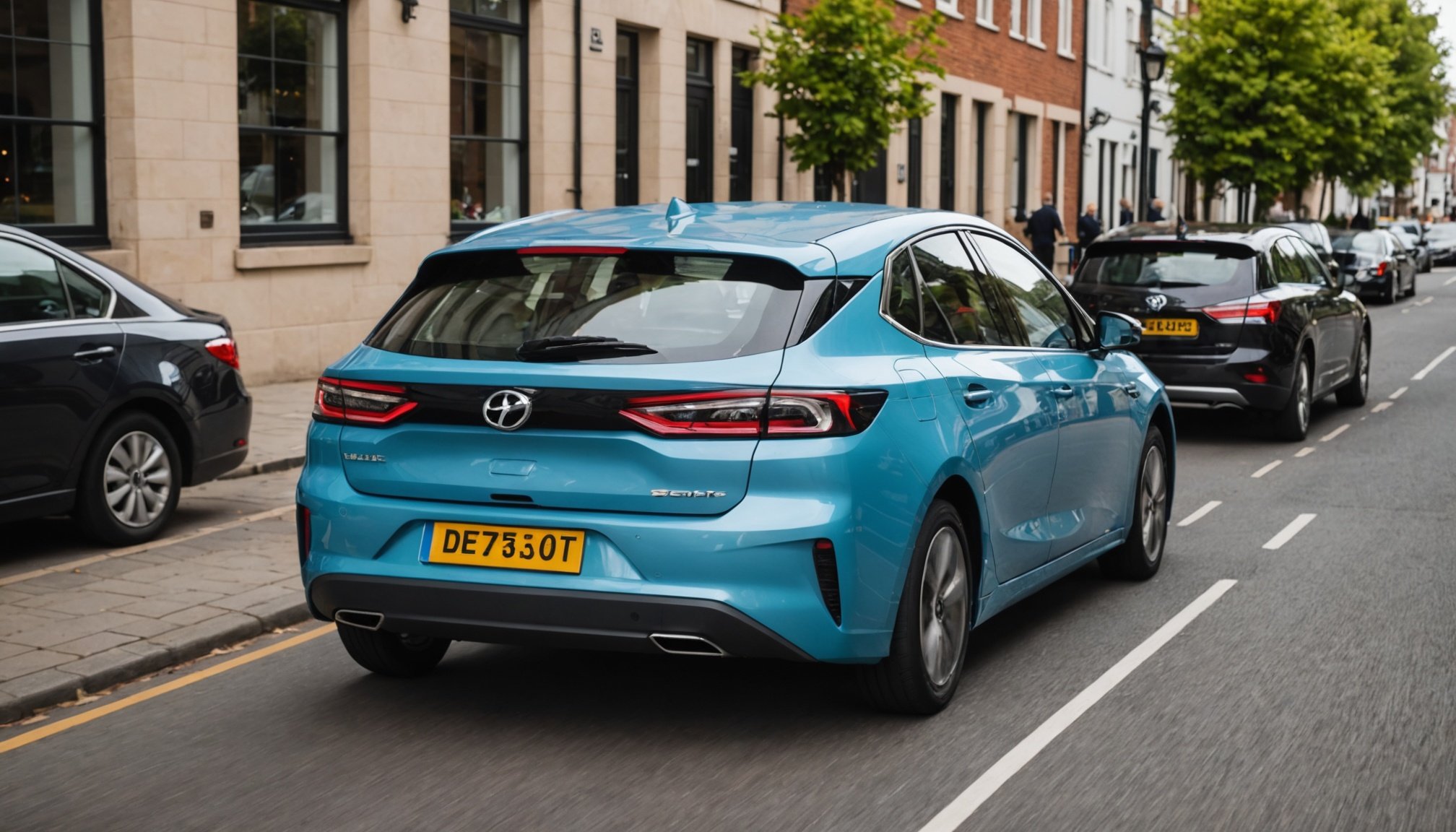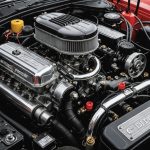Understanding Hybrid Vehicle Batteries
Hybrid vehicles rely on specific battery types crucial for their functionality and efficiency. These hybrid vehicle batteries typically fall into two categories: Nickel-Metal Hydride (NiMH) and Lithium-Ion (Li-ion). Each battery type has distinct advantages, with NiMH being robust and reliable, while Li-ion offers lighter weight and higher energy density. The choice between these can impact a vehicle’s overall performance and efficiency.
The battery lifespan of hybrid vehicles is a key determinant of their long-term viability and performance. Maintaining optimal battery health is imperative since a well-functioning battery directly influences fuel economy and power delivery. In the UK, where temperature fluctuations can be moderate yet impactful, it’s essential to understand how these factors can affect battery longevity. Adverse weather conditions, frequent stop-start driving, and improper battery maintenance practices can significantly shorten a battery’s life.
Have you seen this : Top Symptoms Indicating Alternator Issues in British Commercial Vans
Factors influencing the battery lifespan include regular checks and maintaining the battery cooling system to prevent overheating. In colder climates, ensuring that batteries are warm prior to extensive use is crucial, as low temperatures can affect performance. By focusing on these practical maintenance strategies, hybrid vehicle owners can enhance battery durability, ensuring consistent and reliable vehicle performance over time.
Key Maintenance Practices
Maintaining a hybrid battery is crucial for ensuring your vehicle runs smoothly and efficiently. Battery maintenance tips focus on routine checks to prevent issues arising from wear and tear.
Also to see : Top Symptoms Indicating Alternator Issues in British Commercial Vans
Routine Maintenance Checks
Engaging in regular battery inspections serves as a preventive measure, allowing for early detection of potential problems. It is important to recognise signs of battery wear, such as decreased power, slower charging, and visible corrosion. Adhering to a recommended maintenance schedule often includes monthly inspections, ensuring the battery remains in peak condition.
Optimal Charging Practices
Charging habits play a significant role in battery care. Best practices suggest avoiding rapid charging as it can stress the cells, leading to reduced battery health over time. Additionally, maintaining consistent charging habits can extend battery longevity. Following these practices ensures that the battery holds its charge efficiently and lasts longer.
Cleaning and Care Techniques
Dirt and grime accumulation can adversely impact battery performance. Using recommended cleaning products, such as non-abrasive cloths and mild detergents, is vital for effective cleaning. Regular cleaning, typically every few months, prevents buildup that could cause damage. These regular inspections combined with proper cleaning techniques contribute significantly to the overall lifespan and performance of the battery.
Driving Habits That Enhance Battery Longevity
When it comes to extending the life of your car’s battery and improving fuel efficiency, the way you drive plays a pivotal role. While it may not always be at the forefront of a driver’s mind, adopting the right driving habits can make a significant difference.
Firstly, your driving style is crucial. Rapid acceleration and deceleration can place undue stress on your vehicle’s battery, leading to premature degradation. Smooth and steady driving is advised to ensure optimal battery usage.
Driving at moderate speeds also enhances fuel efficiency. Higher speeds lead to increased aerodynamic drag, which consequently demands more power and depletes the battery faster. Staying within the speed limits and using features like cruise control can help maintain a balanced battery usage.
Avoiding long periods of idle time is yet another important strategy. An idling engine consumes as much fuel as a running one, without progressing your journey or achieving anything meaningful. This unnecessary fuel consumption adversely affects both the battery and overall fuel efficiency. Turning off the engine during prolonged stops is a simple yet effective habit to adopt.
By paying attention to these driving habits, you not only safeguard your vehicle’s battery but also contribute to a more fuel-efficient driving experience.
Environmental Factors and Their Impact
Understanding the role of environmental factors in battery performance is crucial, especially in the UK climate. The environmental impact of various conditions, such as temperature, greatly influences battery efficiency and longevity.
Temperature Effects on Battery Performance
Cold weather in the UK can dramatically influence battery efficiency. As temperatures drop, the chemical reaction within batteries slows, reducing their efficiency and capacity. One way to mitigate this impact is by using battery thermal management systems which keep the battery at optimal temperatures. Additionally, climate control features in vehicles provide a steady temperature environment for the battery.
Driving Conditions in the UK
The diverse driving conditions in the UK, from urban city centres to rural roads, also affect battery health. Urban driving often involves frequent stop-and-go traffic; this can deplete battery life more quickly. Conversely, rural driving might be more consistent but involves longer distances. For optimal battery health, planning routes that balance speed and frequency of stops is recommended.
Seasonal Battery Care
Seasonal changes necessitate different battery care practices. Winter conditions demand pre-emptive maintenance such as checking battery charge levels and ensuring the use of antifreeze solutions. Conversely, summer care focuses on preventing overheating by reducing direct sun exposure and utilising ventilation. Adapting to these seasonal requirements ensures sustained battery performance year-round.
Avoiding Common Myths and Pitfalls
Hybrid vehicles often come with several battery myths and misconceptions that can lead to unnecessary worry or improper care. One prevalent myth is that hybrid batteries need to be charged manually, similar to plug-in electric vehicles. In reality, hybrid vehicles’ batteries are charged through regenerative braking and the combustion engine, eliminating the need for manual charging.
Misunderstandings surrounding battery care errors also exist. Many believe that completely draining a hybrid battery before recharging is beneficial, thinking it prevents the memory effect common in older rechargeable batteries. However, hybrid batteries are designed to stay within a certain charge range to optimise performance and longevity, so it’s important not to let them fully discharge.
It’s important to address hybrid vehicle misconceptions about maintenance costs. Some fear the potential high cost of replacing a hybrid battery, but these concerns are often overstated. Many manufacturers offer comprehensive warranties, and hybrid batteries usually have lifespans comparable to conventional engines.
To extend battery life, avoid exposing your hybrid vehicle to extreme temperatures for long periods and adhere to regular maintenance schedules. Familiarising oneself with the vehicle’s manual can be instrumental in understanding the best practices for battery management, avoiding battery myths, and ensuring efficient operation.
User Experiences and Expert Recommendations
When it comes to hybrid vehicles, user testimonials offer invaluable insights into battery longevity. These first-hand accounts provide a genuine perspective on the everyday challenges and solutions faced by hybrid car owners. Many users highlight that regular maintenance and monitoring significantly extend their vehicle’s battery life, ensuring efficient performance over time.
Expert Insights on Battery Longevity
Insights from automotive experts shed light on crucial factors affecting battery lifespan. According to recent research studies, hybrid batteries typically last between 8 to 10 years with proper care. Experts advise maintaining optimal charge levels and avoiding extreme temperatures to maximise battery life. Industry best practices suggest routine checks and timely software updates as effective methods for longevity.
User Testimonials and Real-Life Strategies
Hybrid vehicle owners have shared their stories, emphasising practical strategies for battery maintenance. One prevalent piece of advice derived from these stories is the importance of consistent use, as rarely driven vehicles face a higher risk of battery depletion. Personal success stories frequently mention proactive measures, such as investing in high-quality charging systems and regularly consulting with professionals. These strategies not only enhance performance but also reveal lessons learned, including the inevitability of degradation over prolonged periods. These experiences reinforce the importance of an informed approach to hybrid battery care, making it a sustainable and reliable option.
Conclusion and Resources
This section aims to wrap up the key strategies discussed regarding hybrid battery information. Understanding these strategies is crucial for ensuring the longevity and effectiveness of your hybrid vehicle’s battery. Moreover, numerous resources can guide you on this journey.
For hybrid vehicle owners looking to delve deeper into battery maintenance and care, several resources can be invaluable. Whether you’re interested in further reading on proper charging techniques or wish to explore diagnostic tools, there’s ample material available online and in printed form.
Recommendations for Further Exploration
- Online forums provide community-based insights and support. Engaging with other hybrid owners can offer real-world strategies.
- Technical manuals often contain specific hybrid battery information that can enhance your understanding.
- Workshops and seminars by manufacturers or automotive experts provide hands-on learning experiences.
For those eager to further reading on the subject, books like “Understanding Hybrid Cars” contain diverse topics including battery maintenance and lifespan optimization. Utilizing these resources can empower you to make informed decisions about your hybrid vehicle, ensuring its optimal performance.











